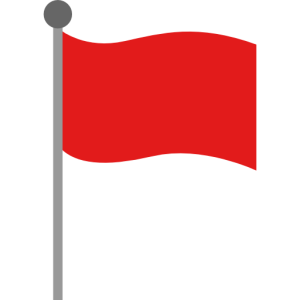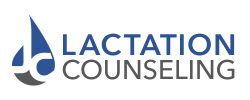What is Maternal Narcissism and How Does it Impact Breastfeeding?
Breastfeeding can be a beautiful bonding experience between a mother and her child, but it can also be a source of stress and anxiety, especially when dealing with a narcissistic mother. When you are the daughter of a narcissist, your new status as a mother is secondary to your own mother’s needs to be a grandmother. When dealing with the narcissistic grandmother, seeking support from lactation consultants and other resources is crucial. Unfortunately, some mothers may not get the opportunity to seek out these resources due to their own infant feeding journey being overshadowed by their narcissistic parent’s need for control and attention. It is like a competition. This was my reality after I gave birth to my son. I (naively) expected my mother to be there for me when I ran into challenges. I really needed for her to listen to me, offer comfort as I experienced the baby blues and find me lactation help but instead, she kept talking about her experiences and centering herself.
The Signs of Maternal Narcissism: How to Identify a Narcissistic Mother
Narcissistic Personality Disorder (NPD) according to the Diagnostic and Statistical Manual of Mental Disorder (DSM-5) is a cluster B personality disorder in which there is a pattern of grandiosity, need for admiration and lack of empathy. There are 9 traits of narcissism. Some grandmothers may display 2 or 3 traits, while others may display 6 or 7 traits. The lower the amount of traits or severity of each trait can be relational to the level of problems you have with your mother.
The 9 traits are as follows:
According to the DSM-5, a person with 5 of the aforementioned traits could be considered to have Narcissistic Personality Disorder. My mother displays 7 of these traits.
 The Effects of Maternal Narcissism on Breastfeeding
The Effects of Maternal Narcissism on Breastfeeding
As I mentioned earlier, when it comes to motherhood, having a support system is crucial. However, for those with narcissistic mothers, the situation can be complicated. Maternal narcissism can manifest in many ways, including prioritizing the grandmother’s needs over the newborn’s, which is exactly what my mother did. This can be particularly challenging when it comes to breastfeeding and lactation. As I discussed in my “I am Worthy” post, I experienced significant nipple pain for weeks. During those first few nights out of the hospital, my mother slept over but she really wasn’t doing anything to help me find relief. She kept saying “I gave you and your sister formula and you guys turned out fine”, but this wasn’t helpful to me at all. I wanted to breastfeed exclusively. I had no idea about the lactation field and the alphabet soup of lactation specialties confused me. The person with the RN license and a Master Degree in Health Care Informatics really should have been the one to assist me, but such was not the case. Because of my mother’s need to be “helpful”, she accidentally contaminated the baby bottle sterilizer with Pin-Sol. I believe this incidence coupled with the life long narcissistic abuse and high-functioning anxiety I experienced since childhood, created the perfect storm for me to develop Postpartum Anxiety.
Coping Mechanisms for Survivors of Maternal Narcissism: Healing from Emotional Abuse
I didn’t realize at the time, but my recovery from narcissistic abuse began the day my son turned 6 days old. The sterilizer incident came about because I asked my mother not to touch my breast pump, sterilizer or baby bottles. I specially told her that I would take care of things the following day. When I woke up the next morning, I noticed that my breast pump was set up and the baby bottles were on the drying rack under a towel. I’m used to my mother overstepping my boundaries and being in control of every situation. I’m used to her not listening and just doing whatever it was that she wanted to do. I’m used to correcting it without her knowing that I did so I decided not to make a fuss and just wash the bottles again and sterilize them. Lo and behold, I opened the lid for the sterilizer and smelled Pin-sol. I’m so used to being gaslighted that I even asked my husband and sister to tell me what they smelled. I was shaking and ANGRY. When my sister and I inquired about it, we found out that she used an old sponge. I had my own method of how I wanted to clean the sterilizer hence why I asked her not to touch it.
My mother was upset with me because of my reaction to her overstepping my boundaries. She said that I accused her of something she didn’t do because her intent was to be helpful, never mind the impact it made on me or the emotional state I was in. She even called me ungrateful and mentioned other things that I did/conditions in my home to take the spotlight off her behaviors and back onto me. To a narcissist, because their egos are so fragile, it is like a criticism to their personhood. My mother suffered what is known as a narcissistic injury. According to Psychology Today:
“Vulnerability in self-esteem makes individuals with narcissistic personality disorder very sensitive to ‘injury’ from criticism or defeat. Although they may not show it outwardly, criticism may haunt these individuals and leave them feeling humiliated, degraded, hollow, and empty. They may react with disdain, rage, or defiant counterattack.”
The author goes on to say that “The narcissistic individuals I have known who have had this kind of injury reaction take a long time to get over it. They hold grudges and want to get back at the person they perceived harmed them; they seek revenge, try to cause problems for their attacker, and seem never to forgive or forget.”
I told my mother that I did not want her to come back over and that I wanted her to replace the sterilizer. She left things at my home and when she came to get them and saw the contaminated sterilizer among her possessions, she flipped out to say the least. She walked into the room while I was holding my 8 day old yelling and cursing at me. She blamed me for everything she could think about and even implied that she didn’t want to be in my son’s life because of the embarrassment I would levy on her. She literally said “You can show (my son’s name) my picture”. The day after, on March 7th 2019, my husband and I received an email titled “Intent of Sale”, effectively evicting us from the co-op that we rent from her. That was the day I lost all trust in my mother.
The Importance of Self-Care in the Recovery Process: Building Confidence & Self-Love After Maternal Narcissism
I went no contact with my mother for several weeks after she lashed out. A common thing with narcissists is when they don’t get their way or are called out, they say things like “my heart is broken” or “I can’t stand this pain anymore” or even “I don’t know if I could live like this” to guilt and manipulate you into giving them narcissistic supply. This is what they feed from. It is your time, emotional energy, and attention. You might have a narcissistic mother who exhibits attention seeking behaviors or experience mysterious illnesses just when things start going right for you. Or she tries to outshine you during your special moments or when you have challenges, like how she made things about her when I was struggling to feed my child. They like to “one up” folks. The narcissistic personality develops during very early childhood due to neglect and/or abuse and stunts their emotional development. Narcissists are essentially toddlers living in adult bodies.
Being narcissistically abused causes emotional scarring, worthlessness, and increases the risk of developing mental disorders such as anxiety and depression. It is a very toxic relationship. But how can a mother do this to her child? Your mother loves you! She’s done everything for you! She made so many sacrifices for you, feeding, clothing, housing and educating you. My response is And?? Being manipulated, triangulated, gaslit, blamed, coerced, controlled is abusive AF and NO ONE deserves to be treated like this. Someone who sets out to intentionally hurt you, doesn’t care for you. Love shouldn’t come with conditions. Parents’ love toward their children is unconditional, just like how believers like myself think that God’s love is unconditional. But a narcissist loves conditionally. If you do this, give me supply, you will get the world. But if you call me out on my behavior when I overstep your boundaries, there will be hell to pay.
Resources to Consider When You Suspect That You Have a Narcissistic Mother
Dr. Ramani is probably one of the most popular educators on this topic. She has a video for every term and phrase that relates to narcissism. Will I Ever Be Good Enough? Healing the Daughters of Narcissistic Mothers by Karyl McBride helped me so much. I’ve also included other content creators from different perspectives, even a narcissist themselves!

The second time I went no contact with my mother was in April 2021. I had to figure out who was Janice outside of her. In order for this to happen, I had to separate from my mother. I had a lot of support from my husband, sister, therapist, friends and members of my group therapy. The guilt was crippling and extremely disabling. I wasn’t able to grow my business or work. A little over two years has passed and I still don’t have a relationship with my mother. And that’s okay. I have less stress and I finally have self-worth.

